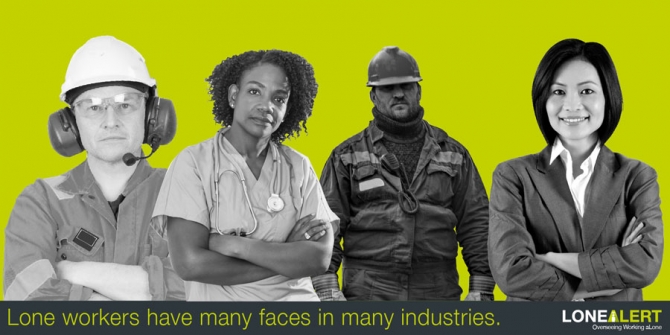Stress affects us all at different times in different situations. But what about those who feel stressed daily but are out of sight, so out of mind? Those that have a demanding job in a challenging or - even at times - an emotionally-charged environment that leave the house at 7am in the morning, not to return home until past 8pm. Or those that spend the majority of their day working at heights, in confined spaces or as an overnight security guard day-in, day-out with nobody to talk to, nobody to discuss the happenings of the day or even the upsetting and volatile situations that they have endured in their daily job.
What happens to those that work alone - the forgotten workforce?
According to HSE’s vital statistics for 2018, 1.4 million workers were affected by work- related ill health in 2017/18. However, an overwhelming 42.86% of these instances of ill health was caused due to stress, depression and anxiety in the workplace. Even more worrying is that we cannot identify what number out of that percentage are lone workers.
This brings us back to the opening sentence - out of sight, out of mind. Take Dan for example, the guy up the ladder installing your satellite dish. The only conversation he has is the ‘hello’ to a stranger or a check-in and out with the team. Jas, the social worker who leaves at 7am. She’s out so early, she can’t take her kids to school and gets home shattered just before they go to bed and doesn’t feel like playing with them because she is exhausted from being spat at, from having abuse hurled at her from angry family members and now has applied the added pressure of feeling guilty to herself because she just wants to spend time relaxing, processing and come to terms with what has happened in her working day.
Who do they talk to?
A lot of lone workers feel they lack support from management and so therefore adopt the "I won’t bother" approach because they think their voice will not be heard and they do not want to feel like a burden.
These are real people, that can - and do - experience horrifying things. Where does all that pent up energy, frustration and stress go? If they feel they cannot talk about it, then how does it manifest itself? It won’t just disappear, it will always be there.
Although a lot has happened in the industry in recent years, and awareness of those that work alone has certainly grown, do we really understand and can we empathise with the emotional needs of a lone worker? According to the British Occupational Health and Research Foundation, 64% of remote lone workers report psychological distress. This again is another saddening statistic and begs the question - are we really doing enough to understand how working alone can affect mental health and the serious effect it is having on psychological well-being?
Changing the culture
Although there is currently not a law in place specifically for lone working, as an employee you have a duty of care towards your lone workers. Here are few things that you can do to create a safer environment which builds trust between you and your lone workers and will make your staff feel at ease in talking to you about any incidents that have happened or problems they have faced:
- Have risk assessments in place for each lone worker in order to identify their needs efficiently and make sure they know exactly what to report.
- Make them feel like they are not just a lone worker - provide programmes on mental well-being and if there has been something particularly distressing which they have witnessed or been involved with then provide external counselling services.
- Adopt a "my door is always open" policy and encourage lone workers to communicate more regularly.
- As exercise releases the ‘happy hormones, endorphins, into your brain, perhaps you could look to provide discounts to gym memberships or organise social activities for your workforce?
It’s vitally important that organisations understand their lone workers both in their role for the company and their emotional needs. Providing efficient and effective risk assessment is part of the job, as is providing the right solutions and the right level of support at the right time. Make sure that just because they are out of sight, they are not out of mind. There is often not enough in place to help lone workers, a lone worker alarm could give them reasurance that they are safe in the work place.

